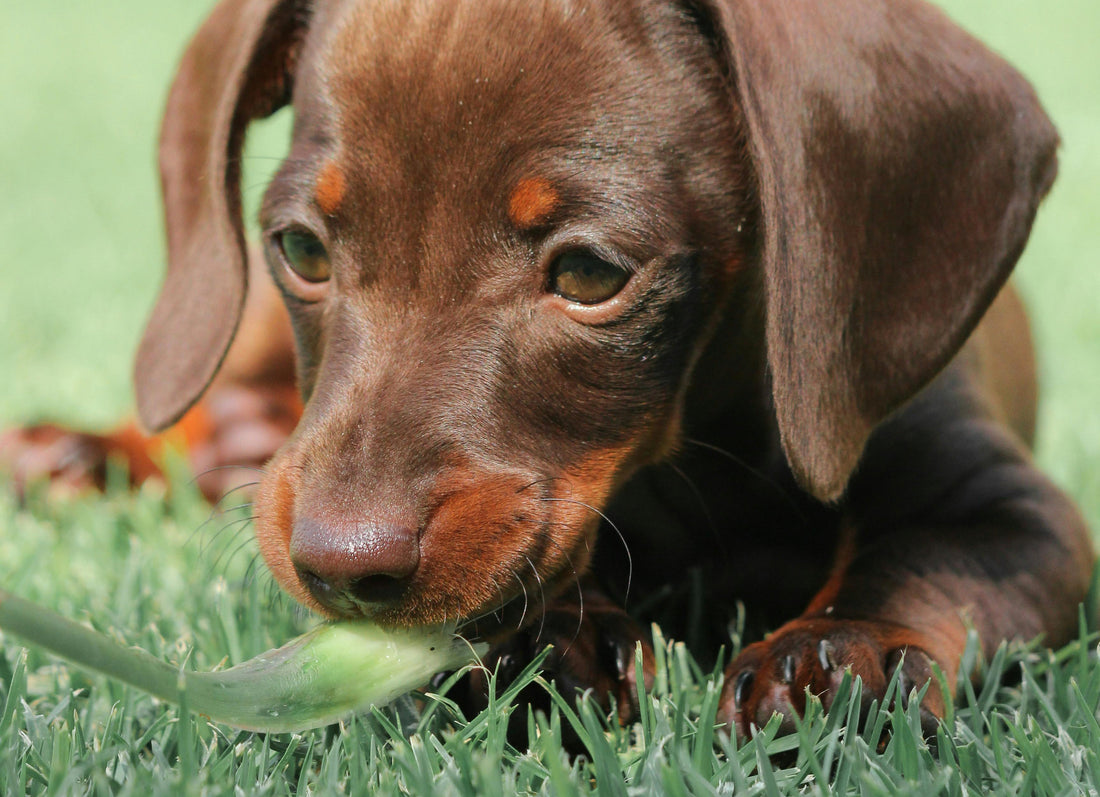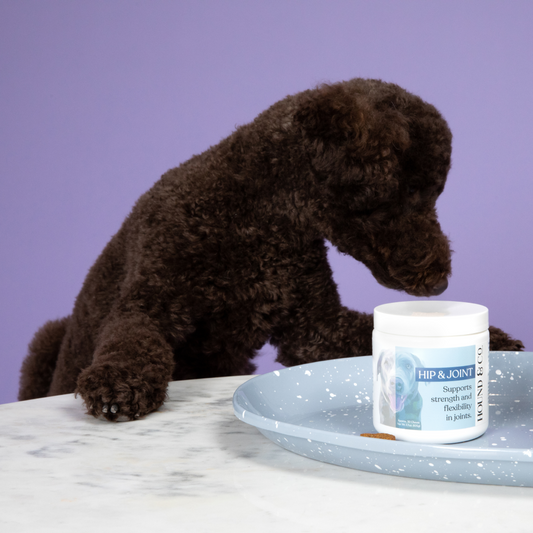Why Does My Dog Eat Grass Like It’s a Salad Bar?

Vet Reviewed by Dr. Jacob Klos, DVM

Is It Normal for Dogs to Eat Grass?
Yes! In most cases, grass-eating is completely normal and not a cause for concern. Studies suggest that up to 79% of dogs eat grass at some point in their lives. While it may seem odd to us, it's a behavior that traces back to your dog’s wild ancestors, who likely consumed entire animals—stomach contents and all, including plant material.
Top Reasons Dogs Eat Grass
1. Instinctual Behavior
Some experts believe dogs eat grass simply because it’s an instinctual habit left over from their wild past. Wolves and other canines occasionally eat plant matter, especially when consuming prey animals. Grass may offer roughage or fiber that helps support digestion.
2. Boredom or Stress
If your dog is under-stimulated, grass may become a form of entertainment or stress relief. Dogs with excess energy—or those left alone in a yard for too long—might graze just to pass the time. In these cases, more walks, toys, or playtime can help.
3. Upset Stomach
Some dogs eat grass to induce vomiting when they’re feeling nauseous. While this isn’t a guaranteed method of relief (and doesn’t always result in vomiting), it’s one theory that explains sudden, frantic grass-eating. If your dog vomits frequently after grazing, consult your vet.
4. Nutrient Deficiencies
Occasionally, grass eating can be a sign your dog is missing something in their diet—like fiber, digestive enzymes, or certain vitamins. If your dog eats high volumes of grass regularly, consider reviewing their nutrition plan with your vet.
5. They Just Like It
It could be as simple as taste and texture. Some dogs genuinely seem to enjoy grass, especially young shoots in the spring. As long as it’s pesticide-free and not obsessive, there’s usually no harm in letting them nibble.
When to Worry
While grass-eating is mostly harmless, watch for signs that it might be linked to something more serious:
- Eating large amounts of grass daily
- Frequent vomiting after grazing
- Loss of appetite, lethargy, or changes in stool
- Obsessive or frantic behavior while eating grass
If you notice any of these red flags, it’s a good idea to contact your vet for a checkup.
Tips for Managing the Habit
- Rule out nutrient gaps. A complete diet with balanced fiber and probiotics can reduce the urge to graze.
- Use distraction techniques. Toys, chews, and structured walks can help deter grass-eating due to boredom.
- Keep your yard chemical-free. Make sure any grass your dog has access to isn’t treated with pesticides or herbicides.
- Monitor patterns. If you notice your dog eats grass at specific times or after certain meals, take note—it may help your vet pinpoint the cause.
Final Thoughts
For most dogs, grass-eating is a harmless and occasional behavior. But if it becomes excessive or is paired with other symptoms, it’s worth digging deeper.
Whether it’s instinct, dietary needs, or simple curiosity, your dog’s grazing habit offers valuable clues into their overall health. Keep an eye on patterns, support their digestion, and always consult your vet if anything feels off.













